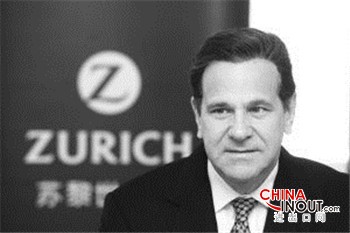蘇黎世保險(xiǎn)集團(tuán)(Zurich Insurance Group)周一宣布,將放棄收購RSA保險(xiǎn)集團(tuán)(RSA Insurance Group),后者是一個(gè)規(guī)模較小的英國競爭對(duì)手。蘇黎世的此次聲明發(fā)生在其業(yè)績出現(xiàn)下滑之后,業(yè)績下滑尤以普通保險(xiǎn)業(yè)務(wù)最為顯著。
蘇黎世還透露,該公司正在對(duì)那些普通保險(xiǎn)業(yè)務(wù)的經(jīng)營狀況進(jìn)行深入的審核。今年8月,一系列爆炸沖擊了中國港口城市天津,蘇黎世預(yù)計(jì)與此相關(guān)的保險(xiǎn)索賠會(huì)給公司帶來2.75億美元的損失。
蘇黎世是歐洲最大的保險(xiǎn)公司之一,它于今年7月聲稱,考慮對(duì)RSA保險(xiǎn)集團(tuán)主動(dòng)發(fā)起收購。上個(gè)月,蘇黎世表示,愿意出價(jià)56億英鎊——約合87億美元,555億元人民幣——收購RSA。
蘇黎世于周一稱已經(jīng)終止與RSA集團(tuán)的磋商,又稱今年上半年其普通保險(xiǎn)業(yè)務(wù)盈利不及預(yù)期的狀況,預(yù)計(jì)會(huì)延續(xù)至第三季度。
根據(jù)與天津爆炸相關(guān)的索賠和最近的準(zhǔn)備金審核結(jié)果,蘇黎世集團(tuán)預(yù)計(jì),其普通保險(xiǎn)業(yè)務(wù)將在第三季度出現(xiàn)約兩億美元的營業(yè)虧損。今年上半年,其普通保險(xiǎn)業(yè)務(wù)的營業(yè)利潤減少了31%,降至12億美元。
蘇黎世在新聞稿中稱:“鑒于近期公司普通保險(xiǎn)業(yè)務(wù)的業(yè)績惡化,蘇黎世于今天早晨宣布,已終止與RSA集團(tuán)就可能的收購出價(jià)而進(jìn)行的磋商。”
這一消息使RSA在倫敦交易所的股價(jià)跌至399便士,降幅21.7%。
RSA集團(tuán)總部位于倫敦,為個(gè)人和企業(yè)客戶提供保險(xiǎn),其險(xiǎn)種包括房屋保險(xiǎn)、車輛保險(xiǎn)、責(zé)任保險(xiǎn)和海上保險(xiǎn)。RSA集團(tuán)市值約為50億英鎊。
該公司在全球雇傭有1.9萬名員工,2014年的凈保費(fèi)收入為74.7億英鎊。
蘇黎世于1872年成立,提供橫跨多條產(chǎn)品線的普通險(xiǎn)和人壽險(xiǎn)。它在超過170個(gè)國家擁有5.5萬名雇員,其2014年的凈保費(fèi)收入達(dá)487億美元。
今年8月,蘇黎世稱,愿意以每股550便士的價(jià)格收購RSA,但條件是完成對(duì)該保險(xiǎn)公司的盡職調(diào)查,且RSA董事會(huì)建議股東接受出價(jià)。
RSA集團(tuán)曾表示,如果其他條款能夠得到滿足,董事會(huì)愿意推薦這一出價(jià)。
在周一的新聞稿中,RSA證實(shí)其與蘇黎世之間的討論已經(jīng)終止,但稱蘇黎世的盡職調(diào)查“沒有發(fā)現(xiàn)任何妨礙交易繼續(xù)進(jìn)行的因素”。
“自那以后,RSA在工作計(jì)劃的實(shí)施上,保持著卓越的進(jìn)展,這已為我們的半年業(yè)績所證明,”RSA稱。
RSA于2014年2月聘請(qǐng)斯蒂芬·赫斯特(Stephen Hester)擔(dān)任首席執(zhí)行官,他曾于蘇格蘭皇家銀行(RBS)擔(dān)任相同職位。在2008年的政府救市行動(dòng)之后,他掌管了RBS的大權(quán)。2013年12月,在RSA的愛爾蘭業(yè)務(wù)出現(xiàn)資本缺口之后,RSA首席執(zhí)行官西蒙·李(Simon Lee)辭去職位。
赫斯特加入RSA以來,為了籌集資本、鞏固資產(chǎn)負(fù)債表,出手了一些業(yè)務(wù)。
1996年,英國最大的兩家保險(xiǎn)公司皇家保險(xiǎn)(Royal Insurance)與太陽聯(lián)合(Sun Alliance)合并,形成了RSA。(中國進(jìn)出口網(wǎng))

Zurich Insurance Group said on Monday that it was abandoning its pursuit of RSA Insurance Group, a smaller British rival, after a deterioration in its business performance, particularly in Zurich’s general insurance unit.
Zurich also said that it was conducting an in-depth review of those general insurance operations and that it expected losses of about $275 million on insurance claims related to a series of explosions that rocked the port city of Tianjin, China, in August.
The company, one of the largest insurers in Europe, had said in July that it was considering making an unsolicited bid for RSA. Last month, it indicated that it was willing to offer 5.6 billion pounds, or about $8.7 billion, for RSA.
On Monday, Zurich said that its discussions with RSA had been terminated and that weaker-than-expected profit in its general insurance business in the first half of this year was expected to continue in the third quarter.
Given the claims related to the Tianjin explosions and the outcome of a recent review of its reserves, Zurich said that it expected its general insurance business to post an operating loss of about $200 million in the third quarter. The operating profit in the general insurance business declined 31 percent to $1.2 billion in the first half of the year.
“In light of the above recent deterioration in the trading performance in the group’s general insurance business, Zurich announced this morning that it has terminated its discussions in connection with a possible offer for RSA,” Zurich said in a news release.
The news sent shares of RSA down 21.7 percent to 399 pence in early trading in London.
RSA, which is based in London, offers insurance to consumers and businesses, including home, automobile, liability and marine insurance. The company is worth about 5 billion, based on its market capitalization.
The insurer employs about 19,000 people worldwide and wrote 7.47 billion in net premiums in 2014.
Zurich, founded in 1872, offers general and life insurance across several product lines. It has about 55,000 employees in more than 170 countries and had net written premiums of $48.7 billion in 2014.
In August, Zurich said it was willing to offer to pay 550 pence a share for RSA, a bid that was conditioned on completing a due diligence review of the insurer and receiving a recommendation from RSA’s board of directors that shareholders accept the offer.
RSA had indicated its board was willing to recommend the offer if other terms were met.
In a news release on Monday, RSA confirmed that its discussions with Zurich had ended, but that Zurich’s due diligence review “had not found anything that would have prevented them from proceeding with the transaction.”
“Since that time, RSA has continued to make good progress in the delivery of its action plans, as evidenced by our half-year results,” RSA said.
RSA brought in Stephen Hester, a former chief executive of Royal Bank of Scotland, as chief executive in February 2014. He had taken the helm of R.B.S. after a government bailout in 2008. In December 2013, Simon Lee, RSA’s top executive, quit after a capital shortfall in its Irish operations.
Since joining RSA, Mr. Hester has sold businesses and raised capital in order to bolster its balance sheet.
RSA was created in 1996 by the merger of two of the largest British insurers, Royal Insurance and Sun Alliance.











